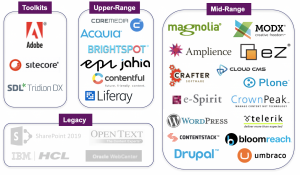AdWords Changes Rules for Resellers; Here Are The Pros, Cons
Google recently adjusted the rules for resellers who are advertising on AdWords, and the ticketing industry is quickly trying to adjust. Resellers are scrambling to meet these new certifications because AdWords is crucial for revenue.
Improving Transparency and Eliminating Deception
Some ticket resellers have damaged the industry’s reputation through deceptive ticket sales practices. They purchase URLs that suggest the reseller is an “official” ticket seller for a specific artist or venue. The buyers cannot determine the reseller’s true identity, and feel misled when they make a purchase.
The AdWords rules require several new disclosures:
- Instances where ticket prices are higher than face value, and clear display of the face value in the same currency
- A conspicuous statement that the company is a secondary market provider—with detailed requirements for font size and placement
- A “final price” before the buyer enters payment information
The call for improved transparency is designed to prevent customer frustration from instances where buyers see an elevated price after final checkout, where the final price is usually laden with fees.
Deceptive websites are a massive industry problem, resulting in hundreds of millions of lost sales. This is addressed by the AdWords certification requirements that require resellers to disclose their business model. The requirements also prevent resellers from using sites such as www.ticketsforARTISTSNAME.com or similarly structured URLs.
Addressing Concerns and Conflicts
Despite the best intentions of the certification changes, there are concerns and obvious loopholes. Display of the “all-in” pricing can be “worked around.” For example, StubHub offers a filter that can show all-in pricing, but then buyers do not see this same process until the very end of the check-out process. So StubHub is technically fulfilling the needs of the certification, but it’s not a customer-friendly transparent approach.
Resellers rightly have concerns about presenting the “face value” of tickets on AdWords ads. It’s difficult — if not impossible — to present a clearly defined face value for the secondary market. Sports teams have used fluid pricing for years, where the price for certain seats moves based on supply and demand.
Industry podcaster Bob Lefsetz recently spoke with Rick Mueller, president of AEG, about the need for dynamic pricing for music and sports events, especially when there’s such a wide split between front-row and “nosebleed” seats. And the pair talked about market demand pushing dynamic pricing, and how this pricing structure is here to stay.
Additional negatives of the new certification rules:
- There’s a “double standard” where consumers that come to a reseller through Google organic search will not see the same site content and disclosures as those who come through AdWords
- One-time certifications will encourage resellers to make adjustments and then revert back to their deceptive practices
Ideally, ticket resellers will embrace the intentions of the AdWords certification requirements, namely the move towards transparency and fairness. While there are negatives with the new requirements, they’ll be refined by Google over time, and the industry as a whole will shift to a more customer-friendly model.
(68)





